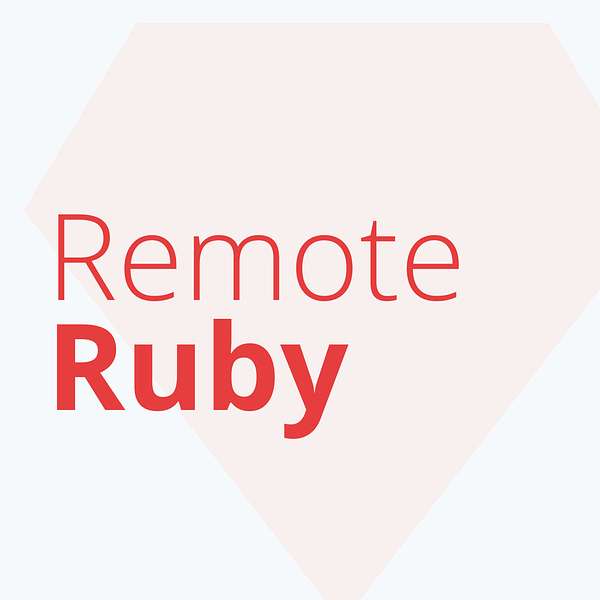
Remote Ruby
Two Rubyists having conversations and interviewing others about Ruby and web development.
Remote Ruby
Rails 7.2 beta 1 with the GoRails Gang
In this episode, host Chris and his GoRails team, Collin Jilbert and Kent Crutchfield,
discuss the latest release of Rails 7.2, highlighting major new features like development
containers, browser version guard, and the new minimum Ruby version. They also
delve into community reactions, including some criticisms about Rails' speed and the
larger discourse around development priorities. The conversations emphasize the
importance of contributing to Rails, staying informed on updates, and promoting the
positive aspects of the Rails community. Hit download now to hear more!
Honeybadger is an application health monitoring tool built by developers for developers.
Disclaimer: This post contains affiliate links. If you make a purchase, I may receive a commission at no extra cost to you.
[00:00:54] This week, the release of Rails 7.2 came out, and Chris highlights major new
features like development containers and the browser version guard, which only allows
modern browsers that support certain features.
[00:02:09] Collin and Chris discuss how they incorporated the new Rails update into
their projects, Jumpstart and GoRails, and faced issues due to browser compatibility,
leading to a series of error notifications.
[00:05:50] Chris talks about the ease of finding and fixing bugs in Rails, the
opportunities to contribute, and his recent work on updating the app generator.
[00:09:03] Collin and Chris discuss making Ruby 3.1 the new minimum version and the
addition of default GitHub CI workflows to new applications, improving the development
process.
[00:11:02] A new beta release of Rails is mentioned, leading to a confusion about
whether Chris’s recent fix was included. Also, they discuss other contributions by their
colleagues and some smaller but appreciated quality of life improvements in Rails.
[00:14:09] Chris brings up a change in the Rials console prompt which Collin doesn’t
initially notice, and Chris discusses color-coded console environments, highlighting red
for production as a subtle warning of potential risks.
[00:15:14] Chris discusses the change in the default thread count in Puma for Rails
applications, explaining the adjustment from five to three threads to balance
concurrency and performance. Also, he covers enhancements in Rails to prevent jobs
being scheduled within transactions.
[00:17:31] We hear about adding after-commit blocks to transactions, which is useful for
executing actions only after a transaction is successfully committed, which is a new
feature in the latest Rails release but limits usage to newer versions for certain
applications.
[00:19:24] There’s a discussion of the YJIT compiler being enabled by default in Ruby
3.3 and higher, optimizing the timing of JIT compilation to exclude boot code, enhancing
performance.
[00:20:56] Chris praises the new update to the Rails guides, highlighting improvements
in navigation and visual organization, Collin mentions a great book by John Athayde,
and they touch on various minor updates and optimizations in Rails.
[00:25:16] Collin observes many removals in Rails and Chris mentions a new
Markdown editor announced by David, which may not be compatible with Action Text.
[00:26:10] The discussion shifts to the recent drama on Twitter regarding the
performance of Rails applications. Kent comments on the various perspectives he saw
during a livestream. Chris expands on a specific issue with a calendar event feature
being slow, and he emphasizes that while speed is crucial, it’s not always the most
critical aspect compared to functionality and user needs.
[00:36:30] Kent brings up the performance of the HEY Calendar, noting its rapid loading
times and compares it to native applications. Chris expands on the philosophical
approach of Rails, emphasizing trade-offs over technical perfection.
[00:41:19] The conversation touches on how speed optimizations are not always the
critical aspect of software development. Chris argues that building useful products that
people want to use is more valuable than mere technical performance.
[00:42:02] A conversation on how communities perceive and discuss technologies.
Chris mentions how Laravel’s community effectively promotes its advancements and
contrasts this with the Rails community, which he feels should more actively celebrate
its achievements rather than focusing on criticisms.

